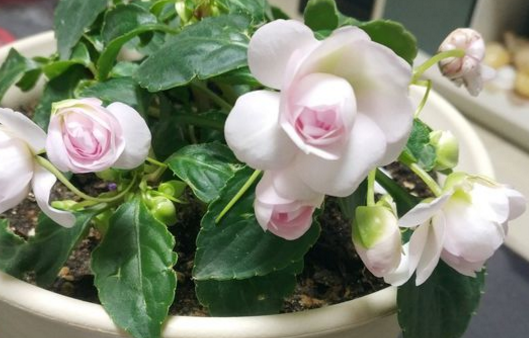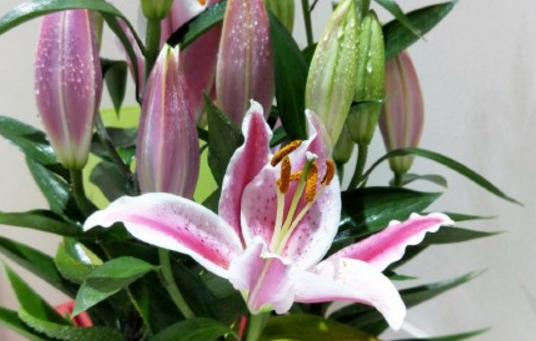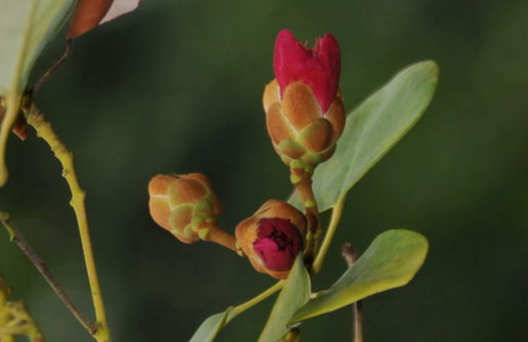What are the culture methods and precautions of African impatiens in disease-free order? Is it poisonous? Can I keep it at home?
African impatiens like a warm and moist environment, which are beautiful potted plants and open-field flowers in the garden at present, so what are the breeding methods and matters needing attention of African impatiens? Is it poisonous? Can I keep it at home? It is understood that African impatiens prefer warmth, requiring higher temperatures in winter and keeping cool and ventilated in summer. African impatiens prefer a semi-shady environment, and the soil generally requires humus-rich soil with good drainage.

First, the culture methods and matters needing attention of African impatiens?
1. Temperature and light
The suitable temperature for the growth of African impatiens is about 15 ℃-25 ℃, and the indoor overwintering temperature should not be lower than 12 ℃. Should give sufficient light, but avoid scorching sun exposure, summer requires cool, and appropriate shade, ventilation.
2. Moisture
African impatiens like to be wet, often keep the basin soil moist, but also pay attention to avoid stagnant water, otherwise it is easy to cause plant waterlogging and death. Maintain a suitable air humidity, which is generally about 70% and 90%. In the case of dry weather in summer and autumn, you should often spray water to the leaves.
3. Soil
African impatiens is suitable to be cultivated in sandy loam with fertile and loose and good drainage.
4. Points for attention
Do a good job in the prevention and control of diseases and insect pests to ensure the healthy growth of plants. The common diseases are leaf spot and stem rot, which can be controlled by spraying 1000 times of carbendazim wettable powder. Insect pests are mainly caused by aphids, and 3000 times of insecticidal essential oil should be sprayed in time.
Second, is it toxic?
To be honest, many people are saying that African impatiens are poisonous and can cause cancer, but in fact, this claim has not been confirmed. Studies have shown that the flower stems and seeds of African impatiens can be used as medicine, and people who breed African impatiens did not say that there were cases of poisoning. It can be said that African impatiens are not poisonous.
Can I keep it at home?
Although African impatiens are not poisonous, I believe many flower lovers will still be worried. In fact, many poisonous plants, as long as they do not emit volatile gases and do not touch them, there will be no problem. So, if you are worried that African impatiens are poisonous, put it in a place that people do not come into contact with very often to reduce the possibility of poisoning.
In this way, there is no problem with the raising of African impatiens.
In addition, African impatiens has a very high ornamental, potted flowers are full of plants, and flowers continue to bloom, very suitable for maintenance on the balcony, windowsill maintenance, can also do hanging basin culture, the results are good. Such fine ornamental flowers, if not placed in their own home, it is really too wasteful.
Time: 2019-03-17 Click:
- Prev

What are the cultivation methods of maryland-family deer onions? What's the difference between changing brocades? How to reproduce?
Deer onions like to grow in the sun, humid environment, such as damp slopes, rocks and cliffs, then what cultivation methods deer onions? What's the difference between changing brocades? How to reproduce? According to the information, deer onions prefer light, it is suitable for growing in a humid environment. But it can withstand semi-shade and drought
- Next

Culture methods and matters needing attention of Carthamelaceae? What are the effects and effects? How to cuttage propagation?
Carthamus tinctorius neutral shade tree species, young trees are shade-tolerant, and prefer light in adulthood, so what are the breeding methods and precautions of safflower lotus? What are the effects and effects? How to cuttage propagation? According to the data, safflower lotus is not strict with the soil, and the general sandy soil can be raised very well.
Related
- Fuxing push coffee new agricultural production and marketing class: lack of small-scale processing plants
- Jujube rice field leisure farm deep ploughing Yilan for five years to create a space for organic food and play
- Nongyu Farm-A trial of organic papaya for brave women with advanced technology
- Four points for attention in the prevention and control of diseases and insect pests of edible fungi
- How to add nutrient solution to Edible Fungi
- Is there any good way to control edible fungus mites?
- Open Inoculation Technology of Edible Fungi
- Is there any clever way to use fertilizer for edible fungus in winter?
- What agents are used to kill the pathogens of edible fungi in the mushroom shed?
- Rapid drying of Edible Fungi

